Covid vaccination has never raised so many questions. Whether questions are about the products themselves or just the action, many questions and answers might make you doubt or not about the sake of being vaccinated to exit the crisis. This is why Sortiraparis editorial board – without ruling for or against vaccination – has decided to help you out and see clearer and try to answer your questions.
Questions about vaccination:
Answers to your questions:
It depends on allergies. At the time of the first vaccinations, a certain number of people noticed a strong allergic reaction after inoculation including severe headaches, high fever, or major skin rash. Yet, they are mild reactions common to all vaccines. You should not be worried if you notice this kind of reaction. Note that since the vaccination campaigns started, searchers have been learning more about severe allergic risks and managed to sharpen the list of people for whom vaccination remains excluded.
For Pfizer and Moderna vaccines, are therefore excluded people who have a history of severe allergic reaction to medicines including polyethylene glycol (or PEG).
As for the AstraZeneca vaccine, the Haute Autorité de Santé does not recommend it to people under 55 years of age, and people prone to thromboses, several severe cases of blood clots have been found in several people vaccinated, some of theme even died. Please also note that despite these severe and rather quite rare effects, the benefit-ration balance remains optimal.
Yes, the vaccine only protects you from the risk of developing severe infection. This is what happened in a nursing home on Friday April 16 in Sarthe. Even though vaccinated, eleven residents have tested positive for Covid – as reported by France Bleu. Yet, the vaccine reduces the risk of being contaminated by the virus, but does not prevent contaminations – as one can think.
Yet please note that for cases of contamination post vaccination, most of them seem related to infection only a few days before vaccination, the virus incubation period being a few days (between five and ten). This is – for instance – what happened to French Minister of Culture Roselyne Bachelot who a few weeks ago has been given the first dose of the vaccine, then, a few days later, developed virus symptoms. Please note the vaccine is only effective from the second week following injection.
This time period exists for a simple reason: protecting you as well as possible against the virus for a long period of time. The time period can change from one vaccine to the other, and – depending on the vaccine – can influence the vaccine effectiveness. As for time periods, our peers from France Bleu remind that in January 2021, the time period between two doses of Pfizer was three weeks, and four weeks for Moderna. As for the AstraZeneca, the time period between the two doses is 12 weeks. The situation changed since then:

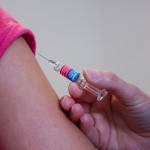

 Covid: the time period between Pfizer and Moderna vaccine doses will be extended to 42 days
Covid: the time period between Pfizer and Moderna vaccine doses will be extended to 42 days
Olivier Véran announced in an interview with Journal du Dimanche that the time period between the two doses of vaccine will be extended to 42 days for patients given the Pfizer or Moderna vaccine. [Read more]
Note the Johnson & Johnson vaccine is a one-shot vaccine and therefore, it does not apply to it.
Even though you have had Covid, vaccination is highly recommended. And for good reason: even though your body created its own antibodies against the virus, they have a limited lifespan. How long exactly? The question has not been answered yet by searchers, but according to a report released on February 11, the Haute Autorité de Santé recommends – as for two-dose vaccines – to give one dose preferably between three and six months following infection. A single dose is said to strengthen immune defenses more than for people who have never been contaminated.
This is not useful, but not forbidden either. Yet, if you have been in contact with someone infected, vaccination might have to be pushed back, and an antigenic test recommended to make sure you are not sick. If the test returns negative, you can be vaccinated. But if it turns out positive, you might have to wait.
In all likelihood, viral vector vaccines (AstraZeneca, Johnson & Johnson, Sputnik V…) seem to be slightly more effective against the Brazilian virus. According to an American study – carried out by the Boston Massachusetts’s General Hospital and released this past March 23 in Cell – mRNA vaccines (Pfizer/BioNTech and Moderna) seem to be “significantly less effective” against the Brazilian variant. Yet please note the vaccines currently marketed are all less effective against this strain and studies are being carried out to sharpen their effectiveness. Yet, mRNA vaccines can adapt more quickly and more easily to variants, whichever they are, in only six weeks.
Each of these two types of vaccines use different technologies: viral vector vaccines therefore use harmless virus (from which anything that could make someone “sick” has been removed) to which is included the inactivated protein of the targeted virus. Once injected in the body, it will incite the body to create antibodies protecting from a likely infection.
As for messenger RNA vaccines, the principle is the same but here, no modified virus: the idea is to convey a “message to the organism as a piece of DNA. Its goal is to encourage the organism to create an inactive fraction of the virus by itself and the antibodies to fight against this virus”, as our peers from France 2 explained.
To find out more:
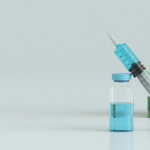


 Pfizer, Moderna, AstraZeneca: What are the differences between Covid-19 vaccines?
Pfizer, Moderna, AstraZeneca: What are the differences between Covid-19 vaccines?
Even though the vaccine campaign started in France, the general public still has to wait for a few months before getting their vaccine. Which one should you get once the time has come? Let us run through the differences and similarities between vaccines provided by AstraZeneca, Pfizer/BioNTech and Moderna. [Read more]

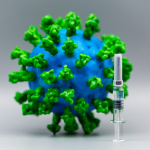

 Covid vaccine: what is a messenger RNA?
Covid vaccine: what is a messenger RNA?
As Covid vaccine has started to be injected to some people in the world in several countries, many people are wondering what this new technology developed for these products is about, a messenger RNA. Keep reading to find out more! [Read more]
The answer to this question is yours and only yours. Weigh the pros and cons given your situation (comorbidity, medical risks and so on) to find out if you should be vaccinated or not, but note that if we want to overcome the pandemic, vaccination remains so far the best solution to avoid as many deaths as possible while waiting for an effective therapy approved by the scientific community.
Adverse effects are known since results of each vaccine’ clinical trials have been released. Here is the list:
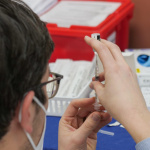


 Covid vaccines: side effects reported and listed in France
Covid vaccines: side effects reported and listed in France
Vaccination goes on in France and the health authorities are thoroughly monitoring the different vaccines available. Here is the list of side effects reported in France. [Read more]
Yet, note that in some people, the AstraZeneca vaccine can lead to sometimes deadly thromboses. An adverse effect causing many polemics since the vaccine had been granted marketing approval.
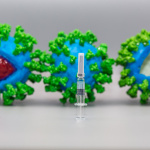


 AstraZeneca: thromboses considered as ”rare side effects” of the vaccine, EMA says
AstraZeneca: thromboses considered as ”rare side effects” of the vaccine, EMA says
After the Medicines Agency confirmed the existence of a "rare" risk of atypical thrombosis, this Tuesday April 6, the European Medicines Agency declares there is indeed a link between the vaccine and the creation of blood clots. The day after, on Wednesday April 7, the European regulator announced in a press brief they list blood clots as one of vaccine rare adverse effects. [Read more]
As for side effects, there are many of them with the Pfizer vaccine including over 13,000 cases reported since vaccination begun (as of April 9, according to data from the ANSM), including 1,811 severe cases. But these data are not comparable with those from other vaccines, the others being far less used than Pfizer (over 8 million vaccinations with Pfizer/BioNTech, against 2.4 million with AstraZeneca). As to known which vaccine is more likely to develop severe adverse effects, note that according to data reported by Journal des Femmes, AstraZeneca ranks first with 24% of severe cases in the 0.38% of adverse effects reported. Then comes Pfizer with 23% of side effects in 0.15% of side effects reported, and then Moderna with 20% of severe cases in the 0.9% of side effects reported.
Not so sure… According to our peers from Francetvinfo, Covid vaccine only represents a “low share of the pharmaceutical industry’s global income”, namely $35 billion in $1,000 billion. And at what cost? The production requires a colossal investment to hope to be money-making – here mostly supplied by the States, public funds by means of financial exchanges at the time of distribution. “It really is a nonprofit vaccine because there are such demands amid this completely novel pandemic”, Roland-Berger cabinet pharmaceutical industry expert Patrick Buechler. Compared to the investment, profit is not necessarily interesting for pharmaceutical groups.
It depends on the vaccine inoculated. As for vaccines such as Pfizer, Moderna and AstraZeneca, two doses are required. But only one dose is necessary for the Johnson & Johnson vaccine. Note people already contaminated by Covid are to only be given one dose, the goal of the second injection being to reactivate the body’s “memory” in the creation of antibodies. This memory already existing in people contaminated, one dose is said to be enough.
It is very likely. Well, according to Pfizer laboratory a few days ago.
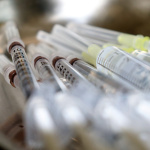


 Pfizer vaccine: booster shots likely to be needed, the laboratory warns
Pfizer vaccine: booster shots likely to be needed, the laboratory warns
Because of Covid-19 variants and to guarantee longer immunity to people vaccinated with the Pfizer solution, the laboratory CEO warned that booster shots were likely to be needed by six to twelve months, then followed by one shot every year. [Read more]
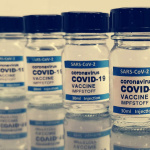


 Covid: would we have to get yearly booster shot against the virus?
Covid: would we have to get yearly booster shot against the virus?
Would Covid seasonality have us get yearly booster shot, like we do against the flu? A question INSERM scientist and infectious disease specialist Odile Launay tried to answer to this Monday March 1 on LCI. [Read more]
This question divides searchers. Some of them consider antibodies are still in the body six months after the infection, before declining. Others noticed they remain at the same level for eight months. The disease being novel, we must wait to get a clearer idea, and each person contaminated does not react to the virus the same way with symptoms on different level of severity, the immune response changes from one case to the other.
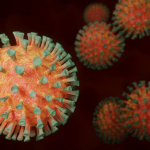


 Covid immunity: how long do antibodies protect from the virus?
Covid immunity: how long do antibodies protect from the virus?
How long is one immunized against Covid? A question searchers from all around the world have been looking for answers for. According to one of the latest studies carried out by Strasbourg university hospitals, antibodies protecting against coronavirus stay for over 12 months in one's body, and vaccine improves their effectiveness. [Read more]


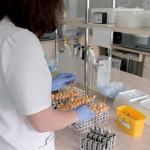
 Coronavirus: asymptomatic cases to lose their antibodies quicker, a study says
Coronavirus: asymptomatic cases to lose their antibodies quicker, a study says
Discoveries as for coronavirus still go on... After the June 2020's Chinese study released on June 18 saying that people infected by the novel coronavirus but who showed no symptoms may develop a weaker immune response, a new British study rubs it in. Keep reading to find out more. [Read more]


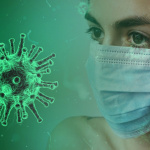
 Coronavirus: neutralizing antibodies might protect from a reinfection, a study says
Coronavirus: neutralizing antibodies might protect from a reinfection, a study says
Several studies released in May 2021 confirm Covid-19 infection gives stronger immunity likely to last for several years. Injecting the vaccine could enable to strengthen the positive effects against the virus. [Read more]